Filter by
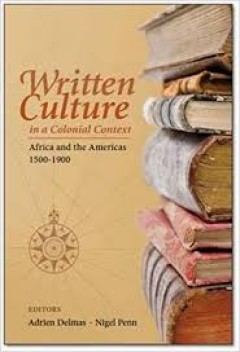
Written Culture in a Colonial Context: Africa and the Americas 1500-1900
There is very little in the modern literature on the history of written culture that describes the specific practices related to writing that were anchored in colonial contexts. It was not just ships, soldiers, missionaries and settlers that drove the process of European expansion from the 16th to the 19th centuries. The circulation of images, manuscripts and books between different continents …
- Edition
- -
- ISBN/ISSN
- 9781919895260
- Collation
- -
- Series Title
- -
- Call Number
- 302.224409 DEL w
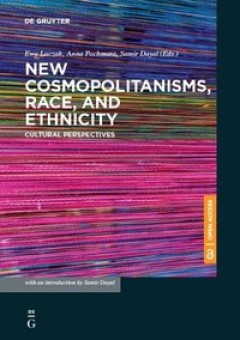
New cosmopolitanisms, race, and ethnicity : cultural perspectives
This anthology sheds new light on cosmopolitanism and culture in the contemporary world. Drawing on postcolonial, ethnic, and critical race studies as well as recent literary and critical theory, it demonstrates that new cosmopolitan thinking can embrace an awareness of ethnic and local differences. It disputes the utopianism of colorblind universalism and argues for the persistence of “race�…
- Edition
- -
- ISBN/ISSN
- 9783110626209
- Collation
- X, 403 p.
- Series Title
- -
- Call Number
- 306 LUC n
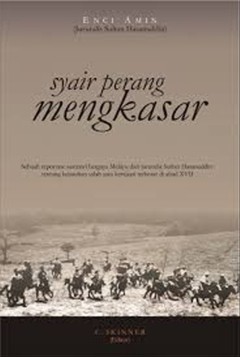
Sja'ir perang Mengkasar
- Edition
- -
- ISBN/ISSN
- 9789004286047
- Collation
- -
- Series Title
- -
- Call Number
- 959.84021 ENT s
- Edition
- -
- ISBN/ISSN
- 9789004286047
- Collation
- -
- Series Title
- -
- Call Number
- 959.84021 ENT s

Decolonising the University
In 2015, students at the University of Cape Town demanded the removal of a statue of Cecil Rhodes, the imperialist, racist business magnate, from their campus. The battle cry '#RhodesMustFall' sparked an international movement calling for the decolonization of the world's universities. Today, as this movement grows, how will it radically transform the terms upon which universities exist? In thi…
- Edition
- -
- ISBN/ISSN
- 9781786803153
- Collation
- vi, 259p.: ill.
- Series Title
- -
- Call Number
- 378 DEC d
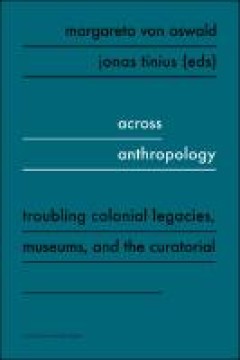
Across anthropology: troubling colonial legacies, museums and the curatorial
How can we rethink anthropology beyond itself? In this book, twenty-one artists, anthropologists, and curators grapple with how anthropology has been formulated, thought, and practised ‘elsewhere’ and ‘otherwise’. They do so by unfolding ethnographic case studies from Belgium, France, Germany, Italy, the Netherlands, and Poland – and through conversations that expand these geographies…
- Edition
- -
- ISBN/ISSN
- 9789461663177
- Collation
- 434p.: ill.
- Series Title
- -
- Call Number
- 301 ACR a
Responding to the west: essays on colonial domination and Asian agency
The nine essays of this volume, spanning from the eighteenth to mid-twentieth century, highlight the workings of, and reactions to, colonial domination in Asian contexts. The scholars, which include Victoria Haskins of the University of Newscastle, use a range of social science history methods to explore new paths to colonial history. How were individuals, groups, and social categories able to …
- Edition
- -
- ISBN/ISSN
- 9789048508204
- Collation
- 181 p. : ill., map ; 24 cm.
- Series Title
- ICAS publication series. 5
- Call Number
- 325.3095 RES r
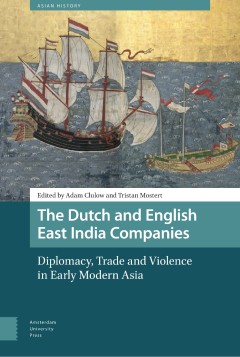
The Dutch and English East India Companies : diplomacy, trade and violence in…
A ground-breaking collection of essays that explores the place of the Dutch and English East India Companies in Asia and the nature of their interactions with Asian rulers, officials, merchants, soldiers and brokers. The Dutch and English East India Companies were formidable organizations that were gifted with expansive powers that allowed them to conduct diplomacy, raise armies and seize terri…
- Edition
- -
- ISBN/ISSN
- 9789462983298
- Collation
- 262p. : ill
- Series Title
- -
- Call Number
- 338.88 DUT d
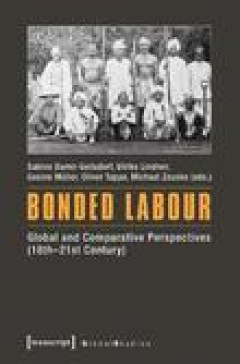
Bonded labour: global and comparative perpective (18th-21st century)
Parallel to the abolition of Atlantic slavery, new forms of indentured labour stilled global capitalisms need for cheap, disposable labour. The famous coolie trade – mainly Asian labourers transferred to French and British islands in the Indian Ocean, Australia, Indonesia, South Africa, the Caribbean, the Americas, as well as to Portuguese colonies in Africa – was one of the largest migrati…
- Edition
- -
- ISBN/ISSN
- 9783839437339
- Collation
- 233p.: ill.
- Series Title
- -
- Call Number
- 331.1173 BON b
Mobilizing labour for the global cofee market
Coffee has been grown on Java for the commercial market since the early eighteenth century, when the Dutch East India Company began buying from peasant producers in the Priangan highlands. What began as a commercial transaction, however, soon became a system of compulsory production. This book shows how the Dutch East India Company mobilised land and labour, why they turned to force cultivation…
- Edition
- -
- ISBN/ISSN
- 9789048527144
- Collation
- 413p.: ill.
- Series Title
- -
- Call Number
- 950 BRE m
 Computer Science, Information & General Works
Computer Science, Information & General Works  Philosophy & Psychology
Philosophy & Psychology  Religion
Religion  Social Sciences
Social Sciences  Language
Language  Pure Science
Pure Science  Applied Sciences
Applied Sciences  Art & Recreation
Art & Recreation  Literature
Literature  History & Geography
History & Geography